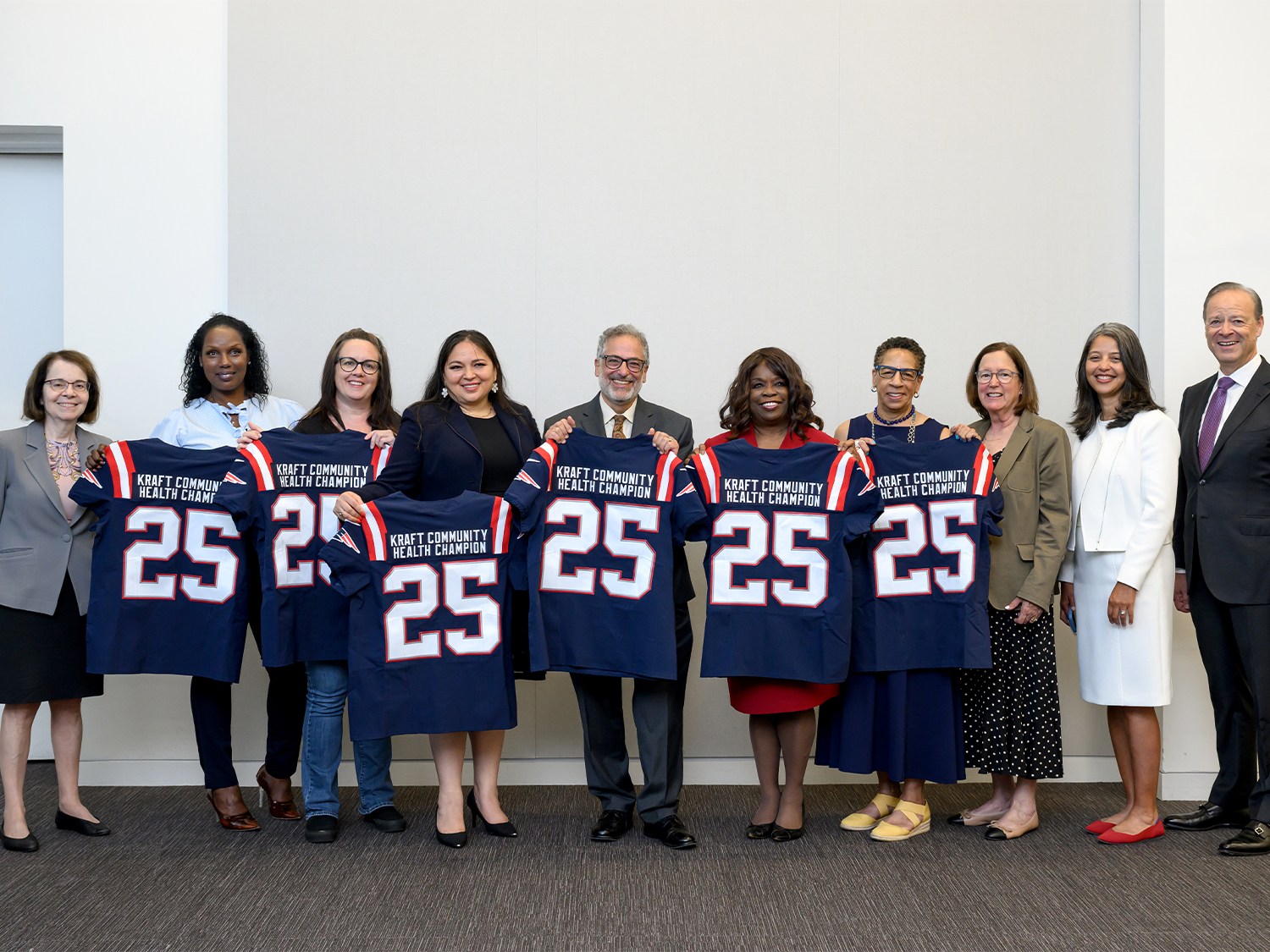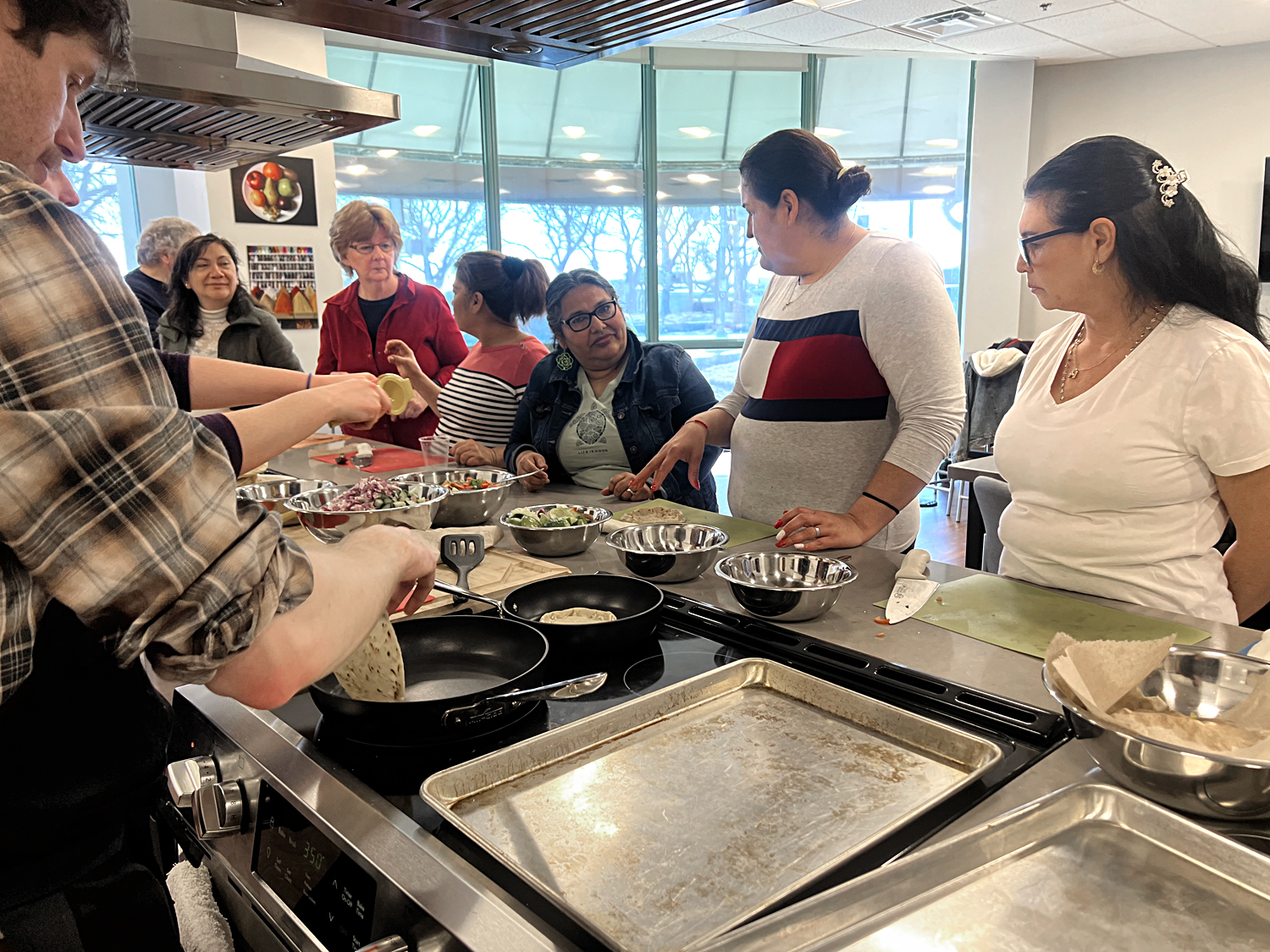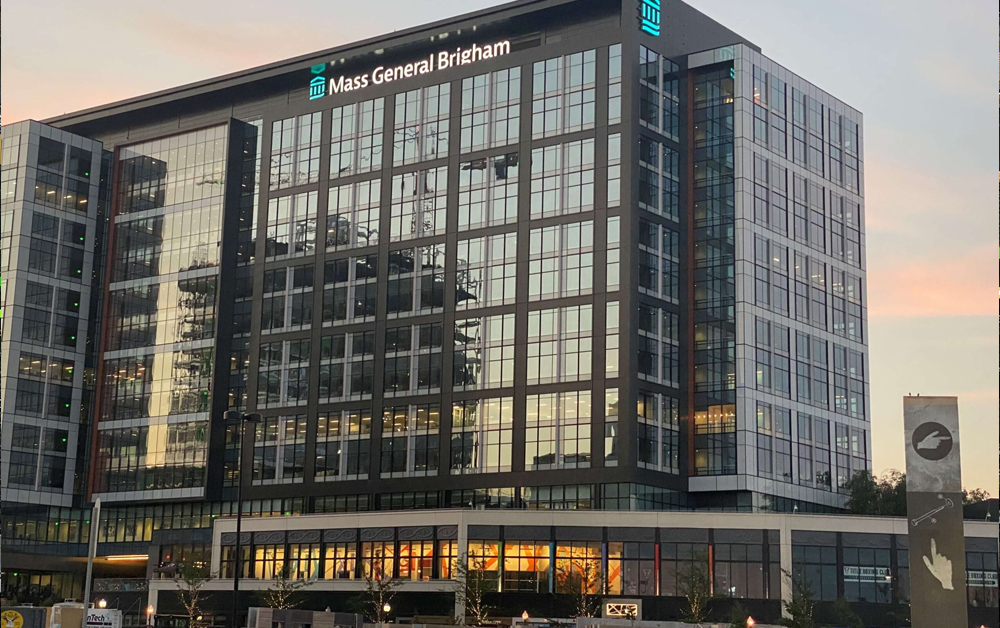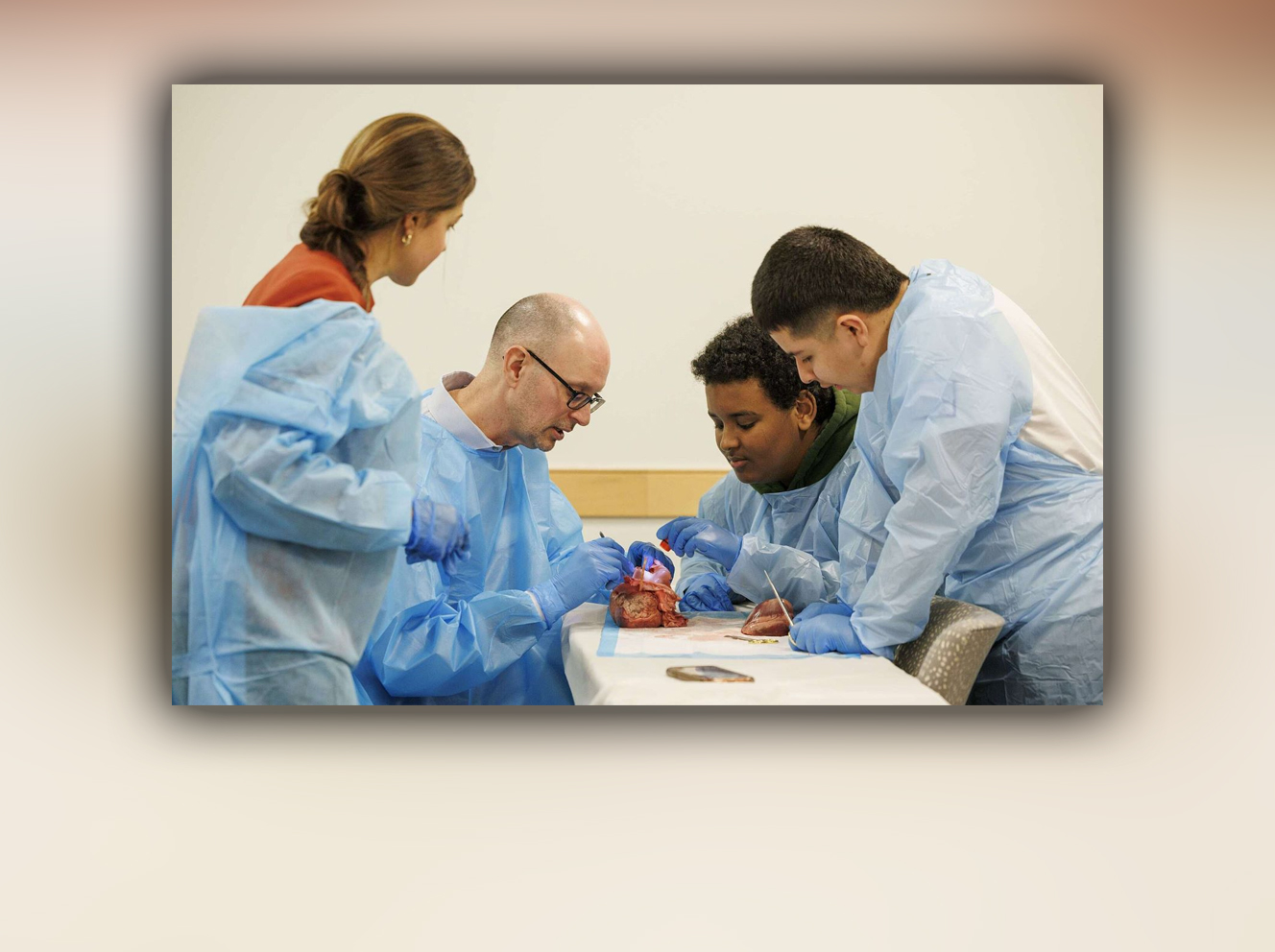Quality, Safety and Community Health
Since our founding in 1811, Massachusetts General Hospital has been deeply committed to caring for our communities. We’ve never wavered from this crucial pillar of our mission. As a result, Mass General is a nationally recognized leader on matters of community and public health. In fact, we’re the only academic medical center that has won both of the nation’s top community health prizes.
Mass General has the experience, talent, resources and dedication to play a sustained role in promoting health equity for everyone in our communities, regardless of race, ethnicity or socioeconomic status.
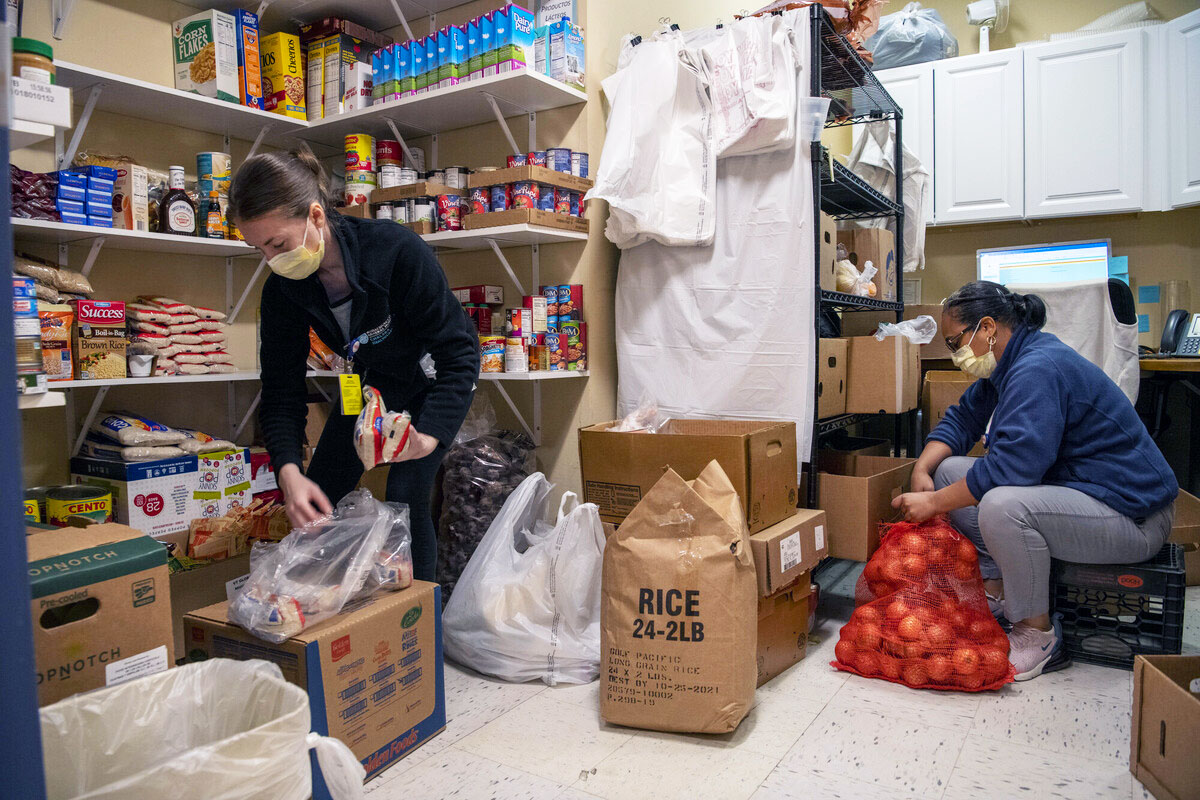
Imagine a future where ...
- Our toughest public health challenges are addressed with proven, broadly applied solutions that focus on equity in all our communities.
- More people and families can count on healthy meals as well as stable, safe and affordable housing.
- Our young people have access to expanded educational opportunities and behavioral health resources.
- Incidents of trauma and violence are reduced, and survivors receive the support they need.
By partnering with our communities, uniting top Mass General talent from across disciplines and providing robust resources, we’re uniquely positioned to continue leading the field in addressing the most persistent problems affecting our communities.
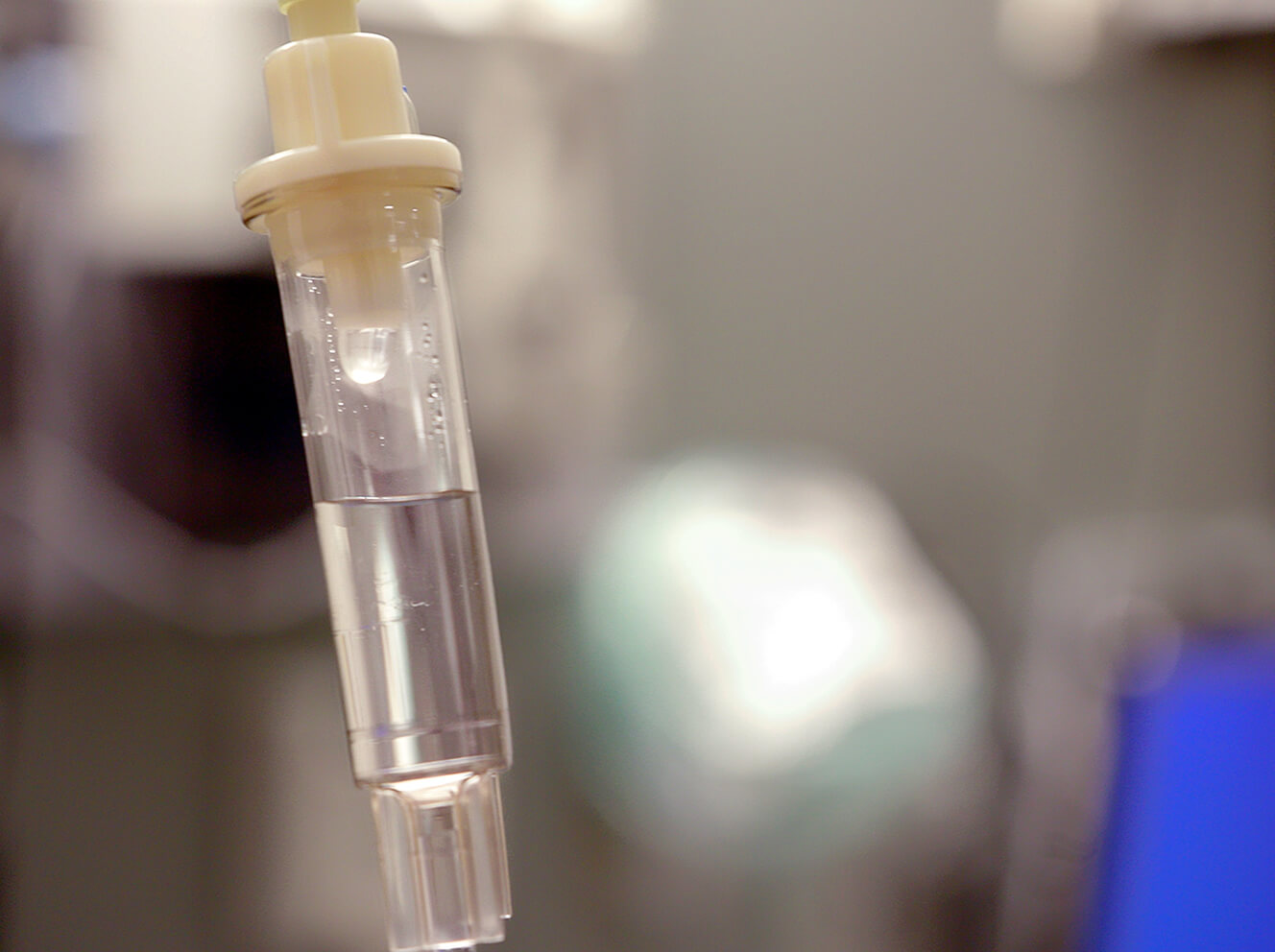
The Making of a World-Class Sickle Cell Treatment Center
Sharl Azar, MD, was recruited to Mass General in 2020 to build a comprehensive, inclusive program to treat adult patients with sickle cell disease, and the Comprehensive Sickle Cell Disease Treatment Center was born. In the three years since, the Center has become a nationally recognized and highly sought-after service.
We’re investing in …
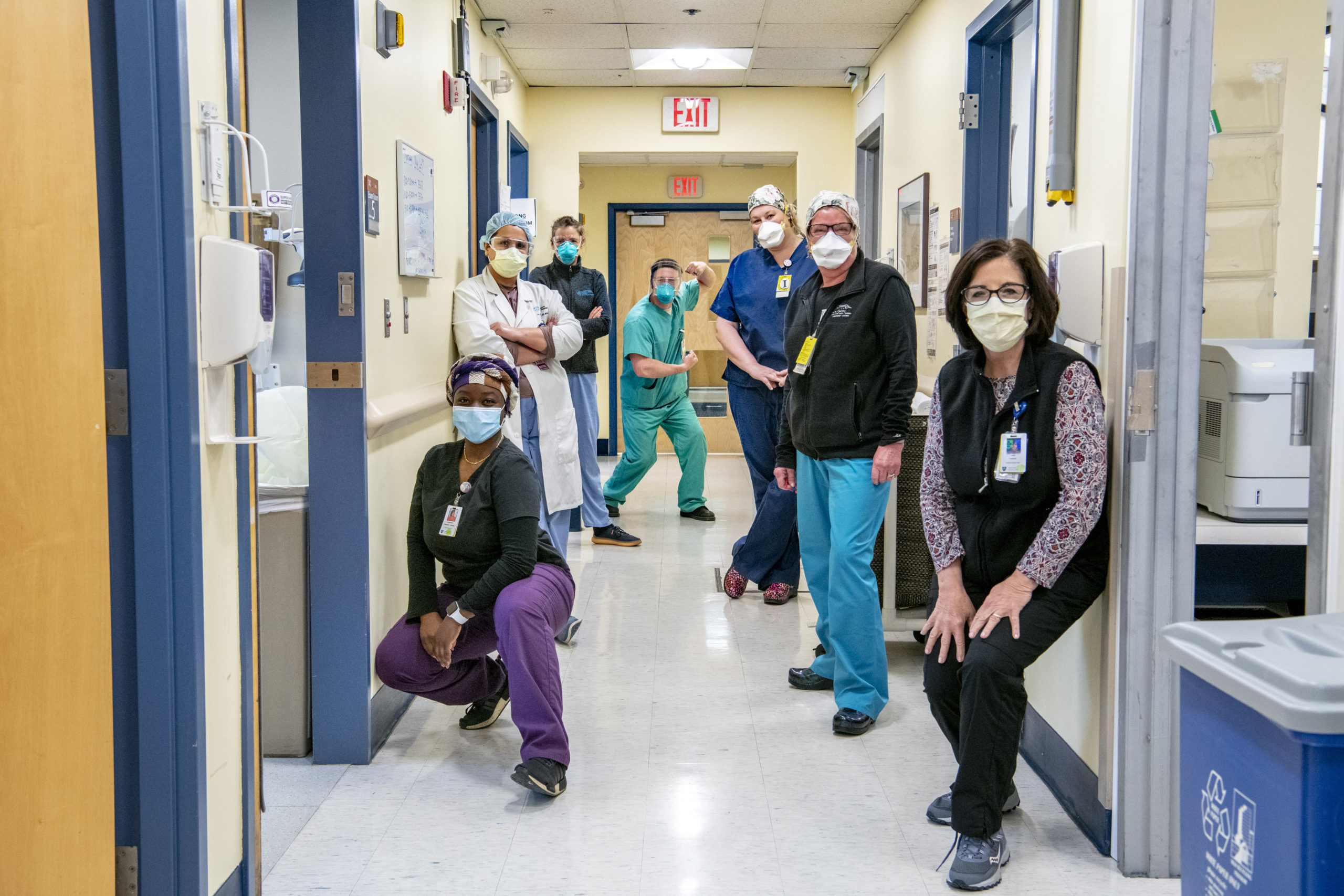
People
Mass General seeks to attract skilled, committed professionals to help us achieve our vision for equity and community health.
- Endowed leadership positions: Creating and funding key leadership positions in our Center for Community Health Improvement, Center for Gun Violence Prevention and broader community health teams will have a tremendous impact. These endowments help us recruit and retain the top minds in these fields and provide additional financial support to advance each crucial initiative.
- Expanded program staff: Our local communities face a broad spectrum of health challenges. In response, we need a diverse team of passionate professionals — community health workers, patient navigators and additional staff — to execute our pioneering initiatives, such as Food for Families, Health Starts at Home, Youth Scholars and our multi-sector coalitions. These individuals can bring our programs to scale so we can reach more patients with complex needs.
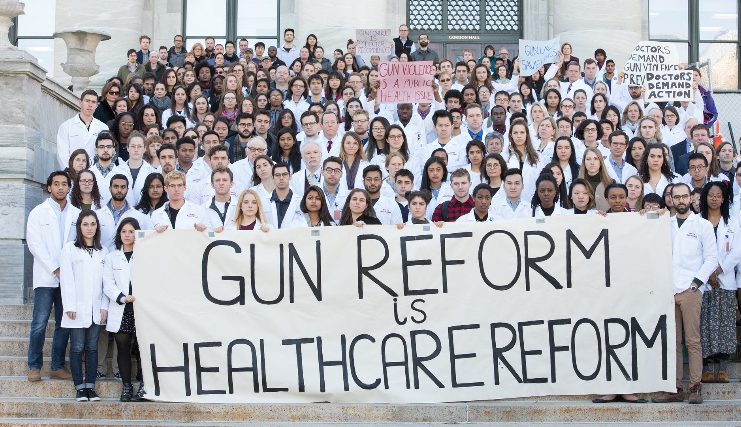
Infrastructure
We’ll invest in technology and other tools that enable us to engage and empower more individuals in local communities.
- Leveraging data: Big data is transforming health care. Today we have access to previously unimaginable amounts of data that inform program design, execution and evaluation. The Center for Community Health Improvement will use data on social determinants of health to identify at-risk patients and populations most in need of assistance.
- Utilizing technology: Emerging technologies are sparking innovative approaches to help staff increase the scope and quality of their services. With the aid of these innovative tools, we’ll find ways to reach more communities and expand our impact.
- Conducting research: Research is critical to determining root causes and interventions for many medical and public health problems — including gun violence. The Center for Gun Violence Prevention will build the infrastructure to examine the causes of gun violence, identify the most effective opportunities for intervention and evaluate the impact of educational and intervention programs.

Programs
We want to ensure our wide range of community health programs have the support they need to thrive.
- The Center for Community Health Improvement: The center will continue to address social determinants of health — factors such as housing, education, employment, food insecurity and access to care. The center is also focused on increasing access to healthy food and addressing mental health and substance use among youth. The center’s community coalitions bring together hospital and community partners to achieve lasting change.
- The Kraft Center for Community Health: The Kraft Center innovates, evaluates and scales novel solutions to the most difficult community health problems. With the help of local and national partners, it executes successful new approaches that have nationwide impact. For example, the center launched a mobile health initiative, Community Care in Reach, that provides clinical care, harm-reduction services and access to addiction treatment across Boston and Massachusetts and which has become a national model for caring for the most vulnerable populations.
- The Center for Gun Violence Prevention: The center works to prevent firearm-related violence through clinical care and education, community engagement and research. The center trains health care professionals to better identify patients at risk for gun violence and improve how they engage those patients to increase safety.
- The Center for Immigrant Health: This interdisciplinary center was launched to foster excellence in clinical care, education, advocacy and research aimed at improving the health and well-being of immigrants. The center functions across all departments and clinical sites at Mass General, focusing on supporting immigrant patients, staff and their families, and leveraging the strengths of our staff who come from around the globe.
- Community health centers: Through clinical and programmatic work, our community health centers are the key to improving access to care for local residents. We’re expanding and strengthening our collaborative relationships, and working to replicate our proven Community Health Worker and Patient Navigation models in all of our health centers. Another pressing goal is to ensure food banks such as the MGH Revere Food Pantry — one of the first therapeutic food pantries, where patients with food insecurity or nutrition-dependent diseases such as diabetes or high blood pressure can access the foods they need to stay healthy — are adequately funded.

